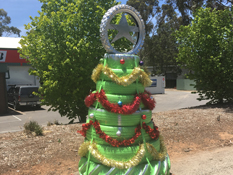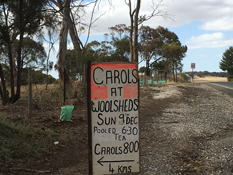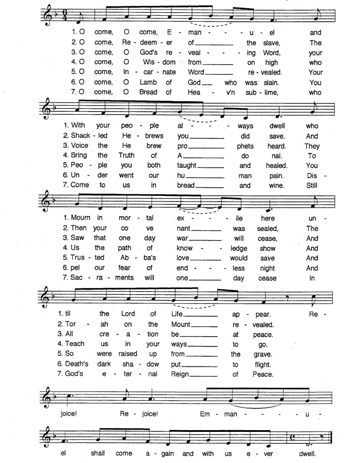Liliane Apotheker, France (ICCJ First Vice President)
| After reading a recent article about the Twelve Points of Berlin a friend of mine suggested that what is expected of us, Jews and Christians, is a circumcision of our hearts. This expression is found in both Jewish and Christian sources and is often used in a confrontational way. Is it not significant that we now see how wrong this confrontation was? Renewal of meaning is what our work is about, it is also how our religious traditions can coexist and increase the riches of our relationship. May the coming year inspire us to infuse new meaning into words known to us all, and share this with a wider circle. Merry Christmas to those who celebrate it and best wishes to all for 2019! | .jpg) |
Pavol Bargar, Czech Republik (ICCJ Second Vice President)
.jpg) | Though highly ambiguous in my view, I find the picture Clearly showing the ideology of consumerism that lies I wish you all a meaningful holiday season that will help |
Shmuel Szteinhendler, Chile (ICCJ Board Member)
We are God´s partners and messengers in this world, to heal, repair and most of all to build, santify and celebrate His creation. At this time of the year I want to wish our Christian brothers and sisters to live each day of the upcoming new year like a holiday - being thankful, spending time with family and friends, and looking towards the future full of hope. Get into the new year with renewed faith and hope. |
|
Michael Trainor, Australia (ICCJ Board Member)
   |
As you would know it is summer here in Australia. I am including three photos (I hope that’s OK) that captures something of the spirit of this time in country South Australia. All of them illustrate the way a religious spirit is incorporated in various ways amongst Australians in a country that is considered to be most secular—that is, its European foundation was based primarily on making Australia a convict settlement (except, of course, for those of us from South Australia—which was a ‘free’ settlement). Of course, this settlement presumed that Australia was “Terra Nullius”… that no one was living on this island-continent. We seek now to right this historical neglect—that indigenous First Australians have been here for over 60000 years! One picture is a country town street scene. If you look carefully on the right you see red bows tied to almost everything upright. The red bow, a traditional image of Christmas, actually goes along both sides of this small country town called ‘Watervale’. It reflects the desire of the people of the town to celebrate the spiritual significance of this time without being seen to be ‘overly’ and embarrassingly religious. Similarly, a second picture, shows a Christmas tree made out of road tyres / tires in front of a car-tyre service centre. Again, it illustrates the desire of the retail place to celebrate this time as special. It is on the main highway that runs through another country town, called Clare. The third picture I think captures something very special. It is the way that the ‘memory’ by members of the this local town community want to celebrate the religious significance of this time of the year, but have done this with cultural adaptation as the signage indicates. Of course, all these are images of a memory held by these people that reflects a Christian context, the predominant—though not practiced—religious tradition in Australia since its European foundation. Underneath all these images is the desire by Australians, at the this time of the year, to dig deep into their religious imagination—in whatever way this might be recalled—the identify a time that is important and a moment that can do something bring about social and cultural harmony. These are subtle but powerful images that seek to rebuild identity, which we in the C-J movement would identity as religious. With the blessings of these days upon all of us, |
Phil Cunningham, USA (ICCJ Immediate Past President)
During the four-week Advent season that prepares for Christmas, Christians think of three "comings" of Christ: To me, the melody that quintessentially captures the longing and yearning of this season is the hymn, "O Come, O Come, Emmanuel! However, its traditional lyrics express a supersessionist understanding of "salvation history." For both Christians and Jews, in different ways, I hope this effort suggests new approaches in liturgically conceiving of our interreligious relationship. |  |

